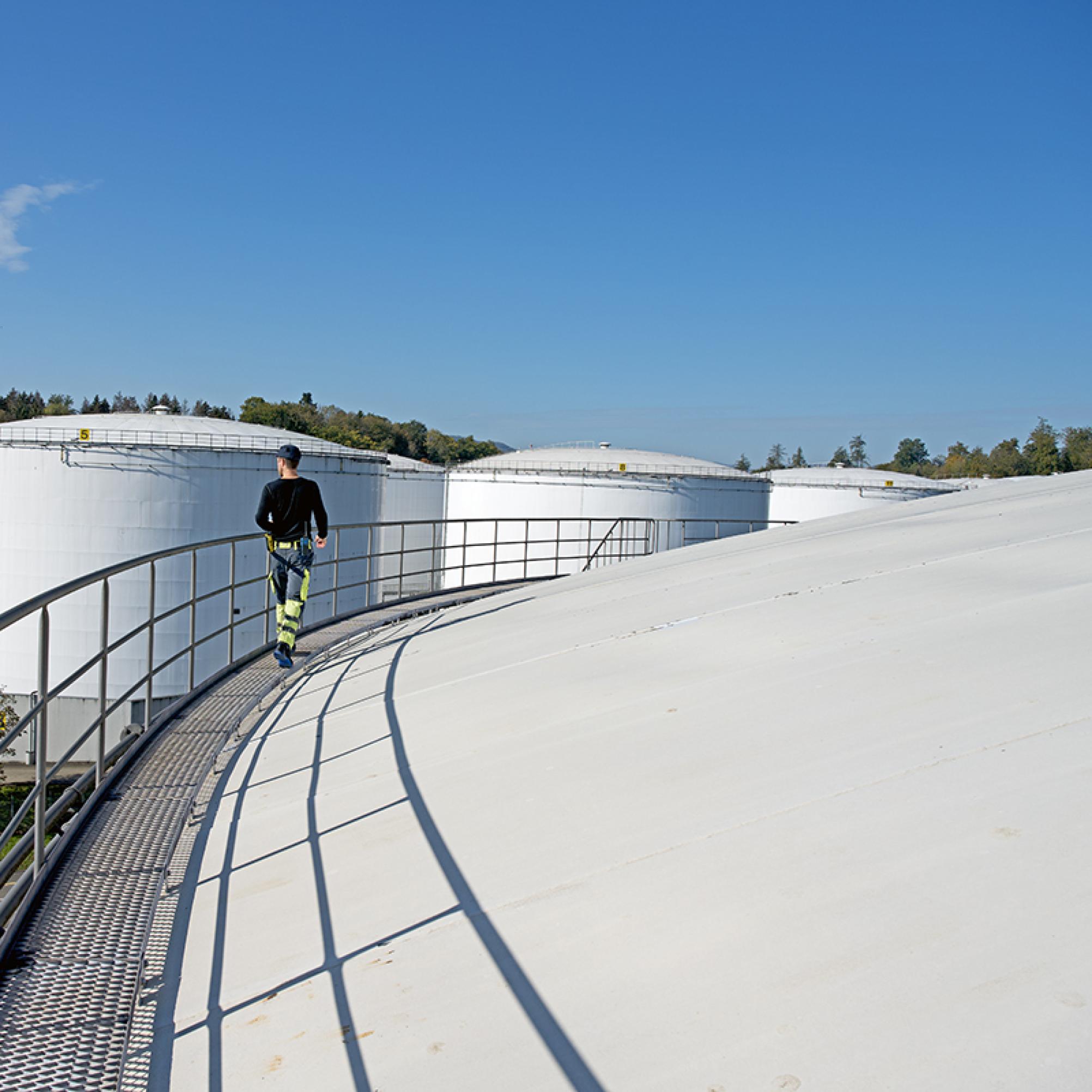Federal Department of Economic Affairs, Education and Research EAER

This tank farm at Mellingen (AG) holds compulsory stocks of petrol, heating oil and diesel, part of the federal government’s strategy for safeguarding the country's supplies.
The
EAER defines framework conditions for the economy and the labour market. It
sets the rules that apply in the private sector and
in agriculture, and represents the interests of the Swiss economy abroad. It is
responsible for organising vocational and professional education and training and
promotes research. The EAER also has the task of making sure that the country
is supplied with essential goods.
Guy Parmelin
Head of the EAER.
Member of the Federal Council since 2016.
Many people in Switzerland were unaware of the vital importance of energy supply.
Priorities of the EAER in 2023
The world has become more uncertain and more unpredictable. This shapes the EAER’s work in a variety of ways. The war in Ukraine has led to far-reaching economic upheaval. The State Secretariat for Economic Affairs (SECO) is responsible for implementing sanctions. Swiss economic policy is also affected, as international trade and supply chains are impaired.
Furthermore, the war has affected the security of energy supply in Europe and Switzerland. DETEC and the EAER are working closely together to strengthen the country's supply of gas and electricity. In the event of a shortage, the National Economic Supply (NES) organisation has prepared measures to ensure that the economy and society can continue to function. The NES organisation consists of the Federal Office for National Economic Supply (FONES) and part-time support staff drawing on around 250 experts from the private sector and other branches of the administration. It is currently being reorganised in order to meet the growing challenges.
One of the central tasks of the EAER is to ensure good framework conditions so that companies can prosper and create attractive jobs. One of the ways in which SECO does this is through its location promotion activities. This are defined in policies on SMEs and tourism, but also regional policy, which promotes value creation in rural and mountain regions.
Expenses 2021 (CHF)
11.77 bn
Staff (FTEs) 2021
2,185
Organisation chart EAER
General Secretariat GS-EAER
Secretary General: Nathalie Goumaz
www.wbf.admin.ch
State Secretariat for Economic Affairs SECO
State Secretary: Helene Budliger-Artieda
www.seco.admin.ch
State Secretariat for Education, Research and
Innovation SERI
State Secretary:
Martina Hirayama
www.seri.admin.ch
Federal Office for Agriculture FOAG
Director: Christian
Hofer
www.foag.admin.ch
Federal Office for National Economic Supply FONES
Delegate a.i.: Kurt Rohrbach
www.fones.admin.ch
Federal Office for Housing FOH
Director: Martin
Tschirren
www.bwo.admin.ch
Federal Office for Civilian Service CIVI
Director: Christoph
Hartmann
www.zivi.admin.ch
Autonomous organisations
Office of the Price Supervisor
Price Supervisor:
Stefan Meierhans
www.preisueberwacher.admin.ch
Competition Commission COMCO
Director: Patrik
Ducrey
www.weko.admin.ch
Board of the Federal Institutes of Technology ETH
President of the ETH
Board: Michael O. Hengartner
www.ethrat.ch
Swiss Federal University for Vocational Education and
Training SFIVET
Director: Barbara
Fontanellaz
www.sfivet.swiss
Swiss Innovation Agency Innosuisse
Director: Annalise
Eggimann
www.innosuisse.ch